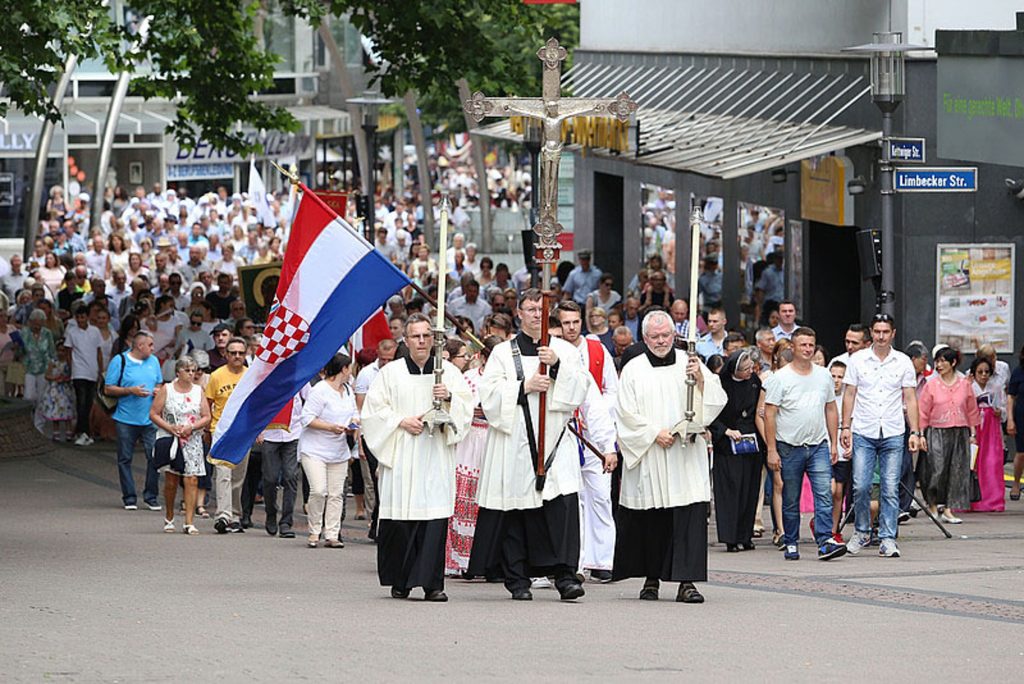Believing as I do that synodality holds out much promise for the Church, I have watched with growing dismay — shared with many others — as a German concoction called the “Synodal Path” lurched erratically forward during the last couple of years. Now, with a key document of that strange enterprise in hand, I conclude that this particular “path” is a one-way road to disaster.
As in several other churches, synods have existed in the Catholic Church for a long time. Diocesan synods are fairly common today. Since Vatican Council II, a Synod of Bishops has been part of the Vatican structure, with an assembly scheduled late next year on the subject of synodality. And Pope Francis for some time has been talking up the idea of a “synodal Church.”
But the Germans’ Synodal Path is something else. The glaring faults of this joint project of the German bishops’ conference and a lay group called the Central Committee of German Catholics, are on full display in a document on “power” in the Church that appears to represent a semifinal stage in the deliberative process.
Dated Jan. 22 of this year and marked “only for members of the synodal assembly,” the 38-page single-spaced document carries the names of Bishop Franz-Josef Overbeck of Essen, representing the bishops’ conference, and Dr. Claudia Luecking-Michel, vice president of the Committee of German Catholics. Bishop Overbeck is on record elsewhere approving of same-sex marriage and women priests. Dr. Luecking-Michel is a longtime Church activist and a former member of the German parliament, the Bundestag.
The document’s controlling idea is that the Catholic Church must adopt the structures and processes of secular liberal democracy operating through a network of synods and synod-like bodies. All leadership positions in the Church, including bishops and pastors, are to be elective and term-limited. Decisions of bishops and pastors can be overruled by majority vote. The pope’s role in selecting bishops is simply to confirm the results of the elections that choose them.
The document further holds that “plurality” even of “core convictions” is acceptable and even desirable in the Church. “A plurality of ways of thinking and living and a cultural multilingualism in the house of the Church is legitimate and even required,” it says. And lest there be any doubt: “plurality in questions of truth and doctrine is legitimate.”
But make no mistake — differences won’t be permitted to slow down “reforms.” And here the document shifts gears, from permissive to authoritarian: “The ability to act must not be put at risk by blocking discourse. … We expect that recommendations and decisions adopted by a majority will also be supported by those who have voted differently. … We expect everyone to help promote the ability of the synodal assembly to act.”
There is more — much more — including reams of tedious rhetoric, but this suggests the document’s flavor and makes it clear where the Synodal Path is headed: toward the kind of coercive pseudo-democracy much favored by progressive ideologues.
Some democratic structures and procedures can and should find a place in the Church. In saying this, however, it is essential to remember that the Church, by the will of its founder, is not a democracy. Rather, considered in its institutional aspect, it is a hierarchical body with a magisterial teaching authority vested in the pope and the bishops in union with him.
The Vatican reportedly is not happy with the Synodal Path. It shouldn’t be. One can only hope Rome will say an emphatic no before this lunacy goes much further.

